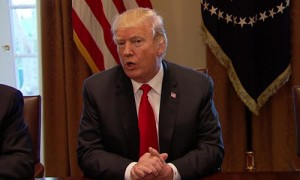China should appoint more full-time spokespersons and promote the professionalization of the sector, as the current system has impaired the country's news release and information transparency efforts, a senior political adviser said.
Wang Guoqing, vice-chairman of the Foreign Affairs Committee of the National Committee of the CPPCC, made the remark amid an increasing demand from the public for timely news releases.
Premier Li Keqiang made a pledge on Wednesday, in his first Government Work Report delivered to the country's top legislative session, to "improve the spokesperson system and make government operations more open" in a bid to "address the social concerns".
According to Wang, who is also a former deputy minister of the State Council Information Office, the country's top information body, the current spokespersons are mostly not professionals, and most of them only take the post as a part-time job alongside their other major duties.
"Being a spokesman is not an important part of their career, and they can choose to perform the role or not," Wang said, adding that some prefer not to speak much, either because they lack the ability or fear they will make a mistake that will ruin their career.
In addition, some spokespersons are not key members of their workplace, so they lack access to crucial information and the decision-making process, which hampers their ability to deliver sufficient messages to the public and media in a timely way, according to Wang.
Observers also said that unlike their Western counterparts, most of whom have been trained in journalism, the majority of Chinese spokespersons started their careers as officials.
They usually deliver government policies in a stiff way and tend to defend government actions instead of thinking from a media perspective.
China should add more full-time spokespersons: senior official
"Meanwhile, the Chinese culture of worshipping the philosophy of the 'unsung hero' and 'speak less and work more' has made active voices rare here," Wang added.
The veteran information official proposed making the spokesperson post a new type of professional technical talent, to be incorporated into the current 29 categories of technical professions authorized by the country's human resources authorities.
By doing so, there will be a threshold for the profession, along with an entry and exit system with detailed regulations. Candidates should be tested regularly, and various government agencies and relevant corporations should have the post, Wang said.
It is also a kind of protection for the spokespersons, Wang said, referring to cases in which spokespersons are sometimes ordered by their leaders to deliver inaccurate messages.
China's spokesperson and news release system has flourished since 2003, when the government was criticized for not releasing information in a timely manner on the deadly SARS outbreak. A national uproar then made the top leadership aware of the necessity of timely news release.
According to official statistics, over the past 10 years, more than 540 officials have been appointed as spokespersons by the central and provincial-level governments.
As a senior official devoted to promoting the country's information transparency, Wang said China's information releasing system has been instrumental in keeping the public well informed and pushing for more government transparency.
"It has played a key role in China's politics and deepening the reform and opening up," Wang said.
However, as China opens up even more and public expectations for timely information increase, the current system won't be able to meet demand, especially in a digital era, Wang said.
"If the government cannot use the information at hand to guide the public, it simply cannot work. Therefore, it's time to push the system forward," Wang said.
Wang also stressed that the Party and government leaders at various levels should improve their media awareness, and enhance their ability to deal with the media and the public.
Unlike their Western counterparts, most Chinese are not cultivated in a media-sensitive way. As a result, some Chinese officials occasionally make improper comments on hot social issues.
"It is time for change, and officials should face the public more often," Wang said.
《中国日报》3月10日报道:有资深政策建议者表示,现有的新闻发言人制度已经阻碍了中国的新闻发布和信息透明,中国应该推进这一领域的专业化,任命更多全职发言人。
大众对新闻发布及时性的需求不断增长,在这一背景下,全国政协外事委员会副主席王国庆提出了上述观点。
上周三全国人民代表大会开幕,李克强总理在他的第一份政府工作报告中承诺发展新闻发言人制度,让政府工作更加公开,化解来自社会的担忧。
王国庆曾任国务院新闻办公室副部长。据他介绍,在国家最高级别信息发布主体中,现任发言人少有专业人士,他们中多数另有主业,发言人只被他们当做副业。
“当发言人不是他们事业的重要组成部分,他们可以当,也可以不当。”王国庆这样说。他还补充,要么是因为能力欠缺,要么是因为害怕犯错影响前途,有的发言人宁愿少开口。
另外,同样根据王国庆的介绍,有些发言人不是相关单位的重要职员,难以知晓关键信息和决策进程。这使得他们无法及时向公众和媒体给出充足的信息。
也有观察者指出,中国的多数发言人从官员起步,而在西方,这一岗位的任职者多数接受过新闻业的训练。
中国的发言人总是枯燥地宣布政府决策,更倾向于维护政府行为,不从媒体的角度思考。
“与此同时,”王国庆还说,“中国文化推崇‘无名英雄’和‘少说话,多做事’的哲学,这使得积极的声音十分稀少。”
这位经验丰富的新闻官员提出建议,将发言人作为一种新的专业技术人才,让发言人融入人力资源和社会保障部已经设定的29种专业技术人才。
由此,这一职业将设定门槛,这一领域的出入将有详细的规则。希望从事这一职业的人要接受定期考核,诸多政府部门和相关单位将设有发言人这一职位。王国庆这样描述。
这也是对发言人的保护,王国庆称,从发生过的事件来看,发言人有时会碍于领导,发布有误的信息。
中国的新闻发言人和信息发布制度于2003活跃起来。当时,有批评指出政府没有及时发布致命病毒SARS的疫情。举国哗然,这让最高层领导意识到了信息发布及时的必要性。
根据官方统计,在过去的十年有540名官员被中央和省级政府任命为发言人。
作为致力于推动国家信息透明的高级官员,王国庆说,中国的信息发布制度一直是推进政府透明,让公众充分知晓信息的工具。
“这是中国政治的关键,起着深化改革开放的作用。”王国庆说。
然而,随着中国越来越开放,公众越来越期望及时获得信息。现有的政策无法满足要求,尤其是在数字时代,王国庆说。
“不能运用手中的信息引导公众,政府会无法工作。因此,是时候改进政策了。”
王国庆强调,党和政府的各级领导都应该提高他们的媒体意识,加强应对媒体和公众的能力。
不同于西方同行,中国发言人没有培养出对媒体的敏感。于是,一些中国官员在社会热点事件上间或抛出不恰当的言论。
王国庆说,“是时候做出改变了,官员应该更频繁地面对公众。”







